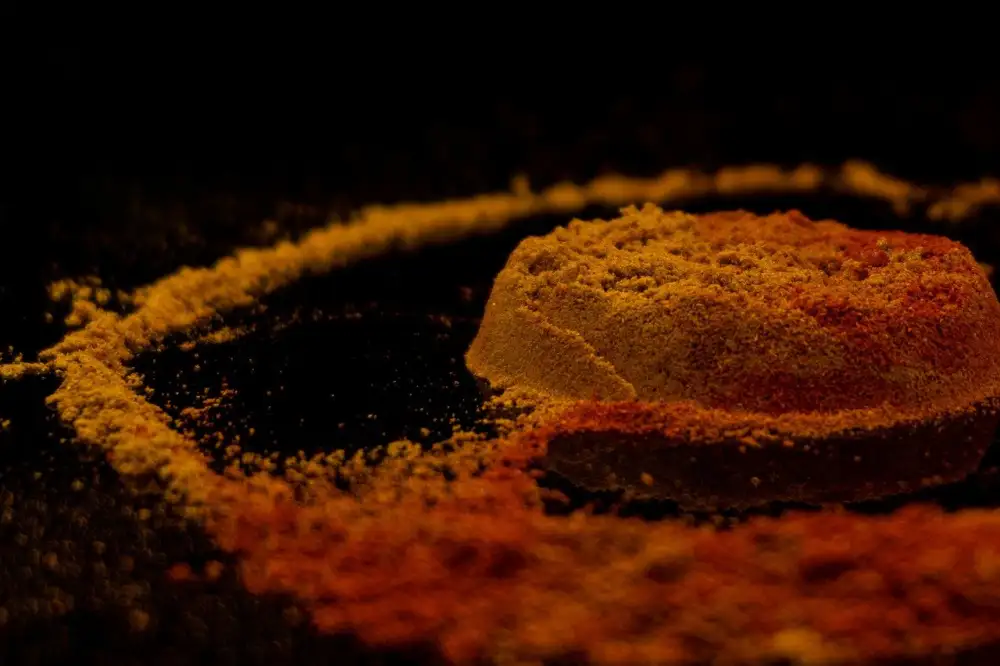Unlock the Flavors of Curry Powder: Elevate Your Recipes with this Versatile Spice Mix

Curry powder is a versatile spice mix that has the power to elevate any dish with its rich and complex flavors. It is a staple in many cuisines around the world, known for its ability to add depth and warmth to both traditional and modern recipes. Whether you are a fan of Indian curries or looking to experiment with global flavors, curry powder is a must-have ingredient in your pantry. In this article, we will explore the history, ingredients, health benefits, and various types of curry powder. We will also provide tips on making your own homemade curry powder and share some delicious recipes that showcase the incredible versatility of this spice blend. Get ready to unlock the flavors of curry powder and take your culinary creations to new heights!
History and Origins of Curry Powder
Curry powder, a staple in many cuisines around the world, has a rich history and fascinating origins. Contrary to popular belief, curry powder is not an ancient spice blend but rather a creation of the British during their colonial rule in India. The British attempted to recreate the flavors they encountered in Indian cuisine by blending various spices together. This resulted in the birth of curry powder as we know it today. Over time, curry powder gained popularity and spread beyond India's borders, becoming a beloved ingredient in global kitchens.
Ingredients Used in Curry Powder
Curry powder is a versatile spice mix that adds depth and complexity to dishes. It is made from a blend of various spices, each contributing its unique flavor profile. While the exact ingredients vary depending on the region and recipe, some common components include coriander, cumin, turmeric, fenugreek, mustard seeds, black pepper, cinnamon, cardamom, and cloves. These spices come together to create a vibrant and aromatic blend that forms the base of many curry dishes. The combination of these ingredients not only adds flavor but also provides numerous health benefits.
Health Benefits of Curry Powder
Curry powder not only adds a burst of flavor to your dishes but also offers several health benefits. Packed with a variety of spices, it is rich in antioxidants that help fight inflammation and boost the immune system. Turmeric, a key ingredient in curry powder, contains curcumin, which has powerful anti-inflammatory properties. It may aid in reducing the risk of chronic diseases such as heart disease, cancer, and Alzheimer's. Additionally, curry powder is known to improve digestion and promote gut health due to its blend of spices like cumin and coriander. With its potential to enhance overall well-being, incorporating curry powder into your cooking can be a tasty way to support a healthy lifestyle.
Popular Types of Curry Powder
Curry powder comes in a variety of blends, each with its own unique flavor profile. Some popular types include:
1. Indian Curry Powder: This is the most common type and is known for its vibrant color and bold flavors. It typically includes spices like turmeric, coriander, cumin, fenugreek, and red chili powder.
2. Thai Curry Powder: Thai curry powder is known for its aromatic and spicy flavors. It often contains ingredients like lemongrass, galangal, kaffir lime leaves, and dried red chilies.
3. Malaysian Curry Powder: Malaysian curry powder has a rich and complex flavor profile. It usually includes spices like cardamom, cinnamon, fennel seeds, star anise, and cloves.
4. Caribbean Curry Powder: This type of curry powder is influenced by the flavors of the Caribbean region. It often includes ingredients like allspice berries, ginger, nutmeg, thyme, and Scotch bonnet peppers.
These different types of curry powders offer a wide range of flavors that can be used to enhance various dishes from different cuisines around the world. Experimenting with these blends can add depth and complexity to your recipes while still maintaining the essence of traditional curry flavors.
How to Make Homemade Curry Powder
Making homemade curry powder is a simple and rewarding process that allows you to customize the flavors to your liking. Here's a basic recipe to get you started:
1. Gather your spices: You'll need 2 tablespoons of coriander seeds, 1 tablespoon each of cumin seeds and turmeric powder, 1 teaspoon each of black peppercorns, mustard seeds, and fenugreek seeds. Optional additions include cinnamon, cardamom, cloves, and chili flakes.
2. Toast the spices: In a dry skillet over medium heat, toast the whole spices (coriander, cumin, black peppercorns, mustard seeds, fenugreek) until fragrant and slightly darker in color. Stir frequently to prevent burning.
3. Grind the spices: Once cooled, transfer the toasted spices to a spice grinder or mortar and pestle. Add the turmeric powder and any optional spices. Grind until you achieve a fine powder consistency.
4. Store properly: Transfer the homemade curry powder to an airtight container and store it in a cool, dark place for up to six months. Remember to label it with the date of preparation.
By making your own curry powder at home, you can experiment with different spice combinations and adjust the heat level according to your preference. Enjoy the satisfaction of creating a unique blend that will elevate your dishes with its vibrant flavors!
Cooking Tips and Techniques for Using Curry Powder
1. Start with a small amount: Curry powder can be quite potent, so it's best to start with a small amount and gradually add more to suit your taste.
2. Toast the curry powder: To enhance its flavor, toast the curry powder in a dry pan over medium heat for a few minutes before using it in your recipes.
3. Use as a seasoning: Curry powder can be used as a seasoning for meats, vegetables, soups, and stews. Sprinkle it on roasted vegetables or mix it into marinades for an extra kick of flavor.
4. Pair with other spices: Experiment with combining curry powder with other spices like cumin, coriander, turmeric, or ginger to create unique flavor profiles in your dishes.
5. Add towards the end of cooking: If you're using curry powder in a dish that requires longer cooking times, add it towards the end to preserve its flavors.
6. Balance the heat: Adjust the heat level by adding more or less chili powder or red pepper flakes to your curry powder mix.
7. Incorporate into sauces and dressings: Mix curry powder into mayonnaise or yogurt-based sauces for sandwiches or salads to add an exotic twist.
8. Store properly: Keep your curry powder in an airtight container away from heat and sunlight to maintain its potency and freshness.
By following these tips and techniques, you can unlock the full potential of curry powder and elevate your recipes with its versatile flavors.
Traditional and Modern Recipes Using Curry Powder
Curry powder is a versatile spice mix that can elevate any dish with its unique flavors. Whether you prefer traditional or modern recipes, curry powder can be the star ingredient in a variety of dishes.
For those who enjoy traditional recipes, curry powder can be used to make classic dishes like chicken curry, vegetable curry, or lamb curry. The combination of spices in the curry powder adds depth and complexity to these dishes, creating a rich and flavorful sauce that pairs perfectly with rice or naan bread.
If you're looking for more modern recipes, curry powder can be used in innovative ways to create fusion dishes. Try adding it to soups, stews, or even salad dressings for an unexpected twist. You can also use it as a rub for grilled meats or sprinkle it on roasted vegetables for a burst of flavor.
The possibilities are endless when it comes to using curry powder in your cooking. Experiment with different ingredients and techniques to create your own unique recipes that showcase the versatility of this spice mix. So go ahead, unlock the flavors of curry powder and take your culinary creations to new heights!
In conclusion, curry powder is a versatile spice mix that can elevate the flavors of any dish. Its rich history and origins add depth to its appeal, while its wide range of ingredients offer a unique and complex taste profile. Not only does curry powder bring deliciousness to your recipes, but it also offers numerous health benefits. Whether you choose to make your own homemade version or opt for a popular type, incorporating curry powder into your cooking will open up a world of culinary possibilities. So go ahead, unlock the flavors of curry powder and let your taste buds embark on an exciting journey!
Published: 03. 01. 2024
Category: Recipes



